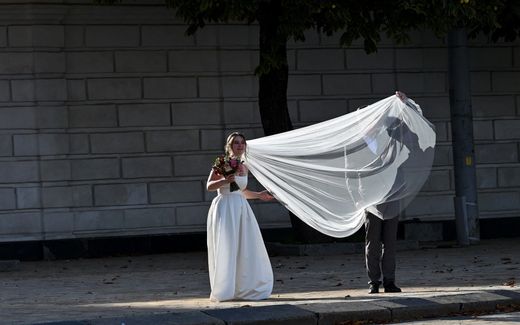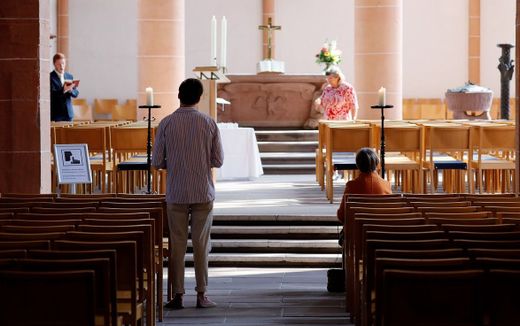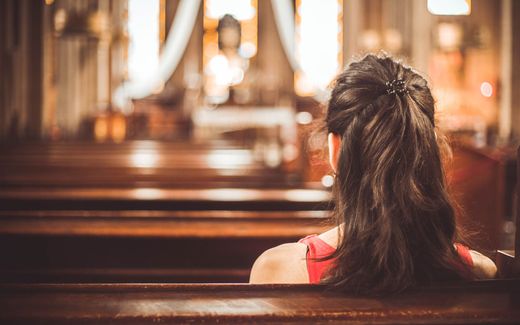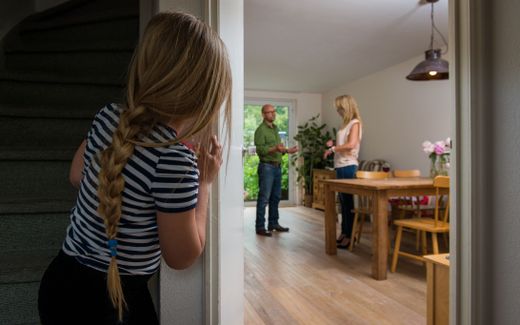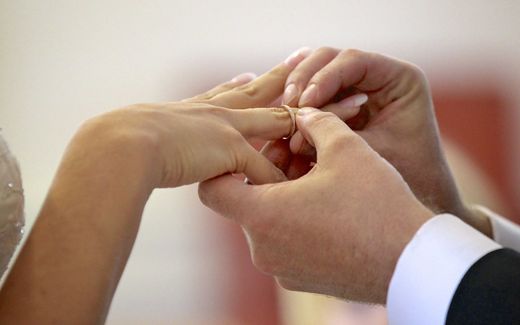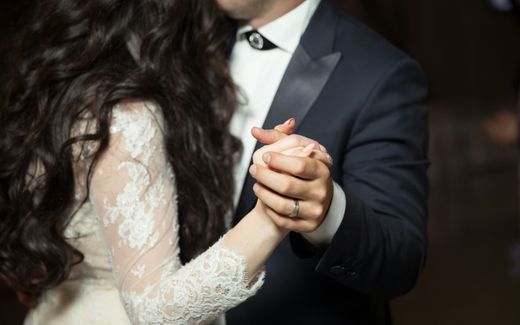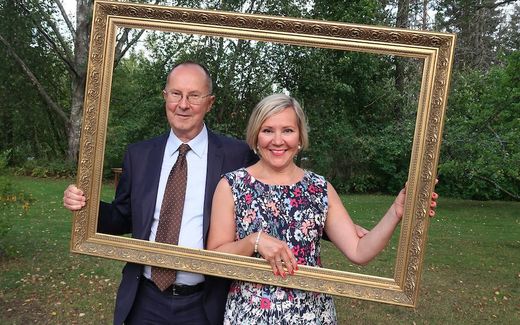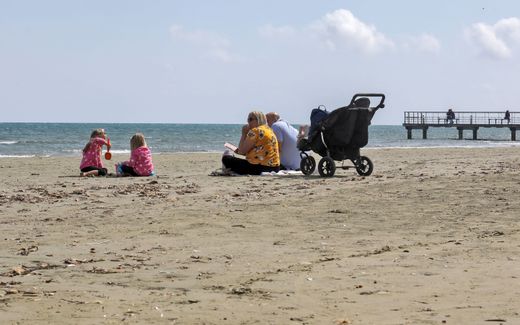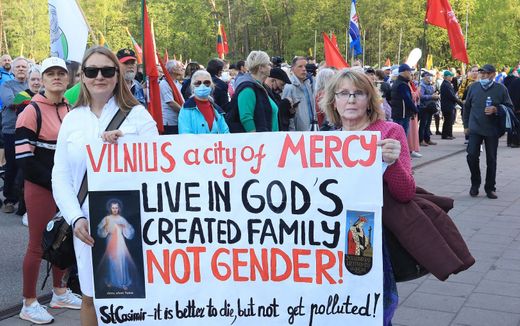All over the world, churches struggle with singles, says author Anna Broadway
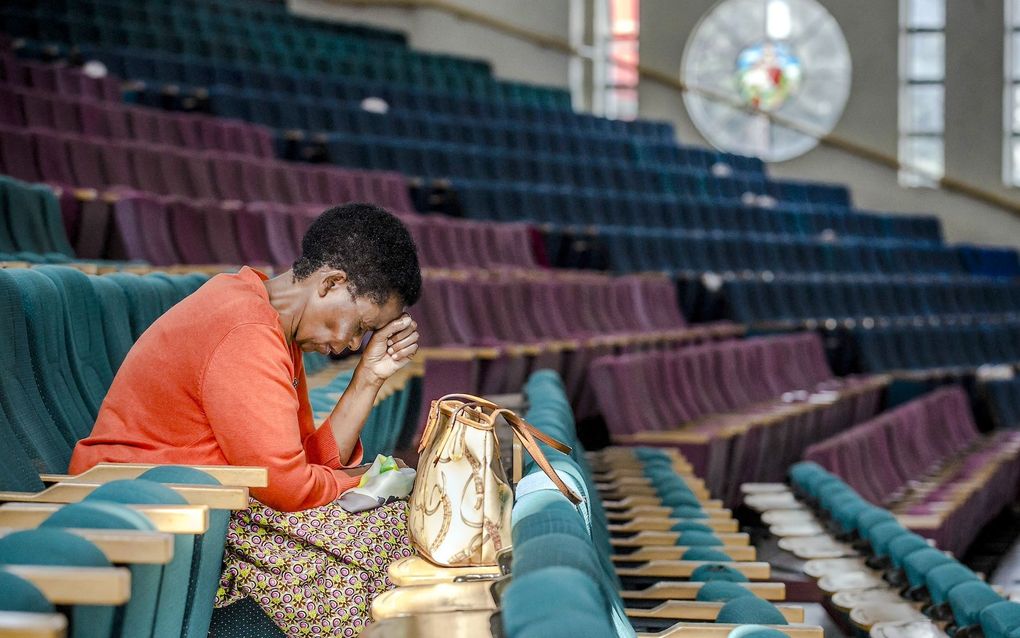
What place do singles have in the church? Photo AFP, Luis Tato
Christian Life
Jesus never said, “Seek marriage first,” but “Seek God’s kingdom first.” Being fruitful in God’s kingdom is not the same as being married. But still, churches are not good at accommodating singles. The American author Anna Broadway pleads for looking at the unmarried with different eyes.
Ephesians 5 was the topic of that church service in the Middle East. Anna had paused her travels there. She was interested, because this chapter gives a spiritual dimension of marriage. It struck Anna that the pastor had no word about the unmarried. Oh, wait, one sentence: “The unmarried, maybe, can get married too”, Anna tells CNE.news.

In a Teams call from her hometown, Anchorage, Alaska, Anna says this was shocking: “I was sitting there next to a 60-something divorced grandmother. Is this really all that he had to say to her? That singleness is something she should pray to get out of?”
For her book “Solo Planet: How Singles Help the Church to Recover Our Calling”, the journalist spoke to no less than 345 Christian people from 48 countries during her travels in 2018-2019. Her conclusion: “No culture seems to be that great at handling singles or integrating them into the local church.”
In the report below, answers have been condensed for length and lightly edited for clarity.
Speaking to 345 singles on six continents: how did you find them all?
“That was different in every place. I always started by contacting a local church. I also tried to stay with Christians in their home. Many of them brought me to the people I interviewed. Sometimes, I had to look for an Airbnb. But even from there, I found new contacts. People in one place always had contacts in other cities, too.
All the fieldwork was surrounded by prayer. Looking back, I see God’s providential hand so remarkably in how He led and protected me. The whole thing was a lot more Spirit-led than anything else I have done before.
It was enriching for me as well. For instance, I stayed with a family without a refrigerator for the first time in my life. That made me realise that I trust in my refrigerator for my food tomorrow more than I trust in Jesus. It made me think, well, what am I depending on?
Although God protected me in dangerous areas, I was held at knife point and robbed in Brazil. I don’t know why that happened, but God provided a night manager at the condo where I was staying to pray with me afterwards. The Lord never left me.”
Is being single in the USA different from other parts of the world?
“All over the world, singles struggle. In many countries, singleness is seen as a problem that must be solved. Sometimes, it is a reason to see you as a second-class citizen.
In India, for example, I heard about a lot of suspicion against widows. For instance, people may not want widows to touch a little child for fear that it may harm the infant.
All cultures have negative words, especially for single women. Words like spinster and so on.”

She also noticed that the word single is understood differently in some places. “When I asked for singles in a church, I meant anybody unmarried, from 23 years to 93 years. But people often said we don’t have that many singles in our church. But they only thought of people in their 20s or 30s actively looking for a partner.”
In general, how do churches deal with singles?
“Not very well. When churches have a programme on singleness, it is often led by a married person. I heard a lot of people complaining that single people were not part of the leadership. Usually, the discussion about singles is limited to sex and dating. I think many churches fail at recognising single people.”
You found that churches everywhere are built around families. Should Christians avoid speaking about their kids?
“It’s the right instinct, with the wrong boundaries. Think about Jesus on the cross: He did not ask one of His younger siblings to care for His mother. He turned her over to a disciple. He was the one who took His mother to his home, and they lived as a family from there.
Churches often celebrate the last words of Jesus. But they don’t seem to understand that Jesus remakes the family right there from the cross. Because of that, you have brothers and sisters, aunts and uncles without blood relationships. That is what the church calls a connection through the Holy Spirit.”
What could churches learn from your research?
“First, we need each other as married and unmarried Christians, and we should help each other.
I remember being in a church group in Pretoria, South Africa. Most of the group were single, but some married couples were also in it. During the conversation, it became clear that both groups had misperceptions about each other. Married people thought that singles were always busy going out and leading their fun single lives.
Single people thought, well, you are just too busy with your spouse and kids. We often need a different picture of each other. Let’s open up more of our life. For instance, by inviting single people for Christmas and other holidays.”
Another thing the church could learn is to look at marriage and family differently, Broadway points out. “The narrative is that a successful life involves getting married, having kids and raising them. But Jesus says: Seek first God’s kingdom and His righteousness. That is something that is just as true for single people as for married people. It suggests a very different kind of fruitfulness.
Remember that the early church grew by proclamation, not by procreation. We are too comfortable with this cultural narrative around marriage and childbearing. At least, churches could reframe how they celebrate Mother’s Day. We all have had mothers. However, many single and some married women have never become mothers. And we all hopefully have chances to contribute to the nurture of younger people we’re not related to.”
Would it help if there were more single pastors?
“Well, that’s an interesting question. Quite a Protestant question, too. I also spoke to Catholics, for whom singleness is a requirement for the ministry. In the Orthodox Church, a married person can become a priest, but he cannot marry or re-marry during his priesthood.
If I see the trends right, I expect the number of single pastors to increase. I think that could be really good. Pastors can give a lot of examples from married life. Without realising, they exclude many unmarried people by that.”
Single women sometimes experience a house visit by two male elders as awkward or even intimidating. How could we avoid such situations?
“I think it is great to go to people’s homes. But it would help if you listened first to this person’s feelings. Not all people feel the same. Perhaps there are other ways to achieve the same goal. Can only elders do this? Or can you invite other females? Creative solutions could be enriching for the community.”
Right at the beginning of the book, you say that single people tend to leave the church more than average. What is the pattern here?
“The American Religious Benchmark Survey found in 2022 that many singles did not come back to church after the Covid pandemic. Before the pandemic, 30 per cent of unmarried Americans never went to church; this grew to 44 per cent. That is a pretty significant shift.

This does not surprise me. Churches had socially distanced worship. That means that singles were literally sitting six feet from other people during the worship. That made them feel lonely. Such an experience can lead to a lack of integration and frustration.”
It is not only the Covid pandemic that is to blame. Based on the fieldwork done before the pandemic in 2018-2019, Broadway shows in her book that many churches have always struggled to integrate singles well.
You are a Protestant. But for this research, you also spoke to Catholics and Orthodox Christians. What did that do with your findings?
“It led to richer conversations. For example, people in the Orthodox Churches fast in an incredible way. I did not know that. It made me think more about food. For a single person, eating is a practical aspect that differs from eating in a family.
In the Catholic clergy, there is the issue of celibacy. As Protestants, we only talk about celibacy for gay people. Those differences give new perspectives.”

You write in your book that you started all your interviews with a prayer. How did people respond to that?
“In some cases, it was a bit awkward, especially with clergy people from another tradition. But I felt it was important to hear God’s purpose for our conversation. It surprised me that a lot of people found the interview meaningful. Not all of them were used to the fact that somebody else was so interested in their life, especially in the mundane details as cooking food. In a few cases, the other person prayed. But in most cases, praying with the interviewees seemed okay.”
Your fieldwork stretched over several years. Your sources might have changed. What happened to them?
“Some of them got back to me afterwards and said they were no longer Christian and asked me not to use their story. Others said they had changed their pronouns because of a gender transition. And others had married. So, much changed with them as well.”
You refer several times to Kevin, a gay man who decided to follow Jesus and left his active homosexual life. He says that his “cross has rainbow colours”. It seems that you present him as a sort of role model. Is that true?
“Not really. I tried to include a range of perspectives on sexuality in my book. Regardless of my personal views, Christians see this differently, and I wanted to reflect that. I think it just happened that Kevin spoke eloquently. Most of the sexual minorities I met were quite young, but Kevin had much more life experience. He had a broader and deeper perspective than others.”
In the book, you say you always longed for marriage. How is that for you after finishing the book?
“I was never so content with my singleness as when travelling around the world for this book. I had a clear sense of purpose. I focused more on what I had than what I did not have. The latter leads to a lot of frustration. The research would not have been possible if I had had a family. And the book would not have been there.”
Anna Broadway. Solo Planet: How Singles Help the Church Recover Our Calling. NavPress (Tyndale House Publishers). ISBN 978-1-64158-685-6. 2024. Price $17.99.
Related Articles


